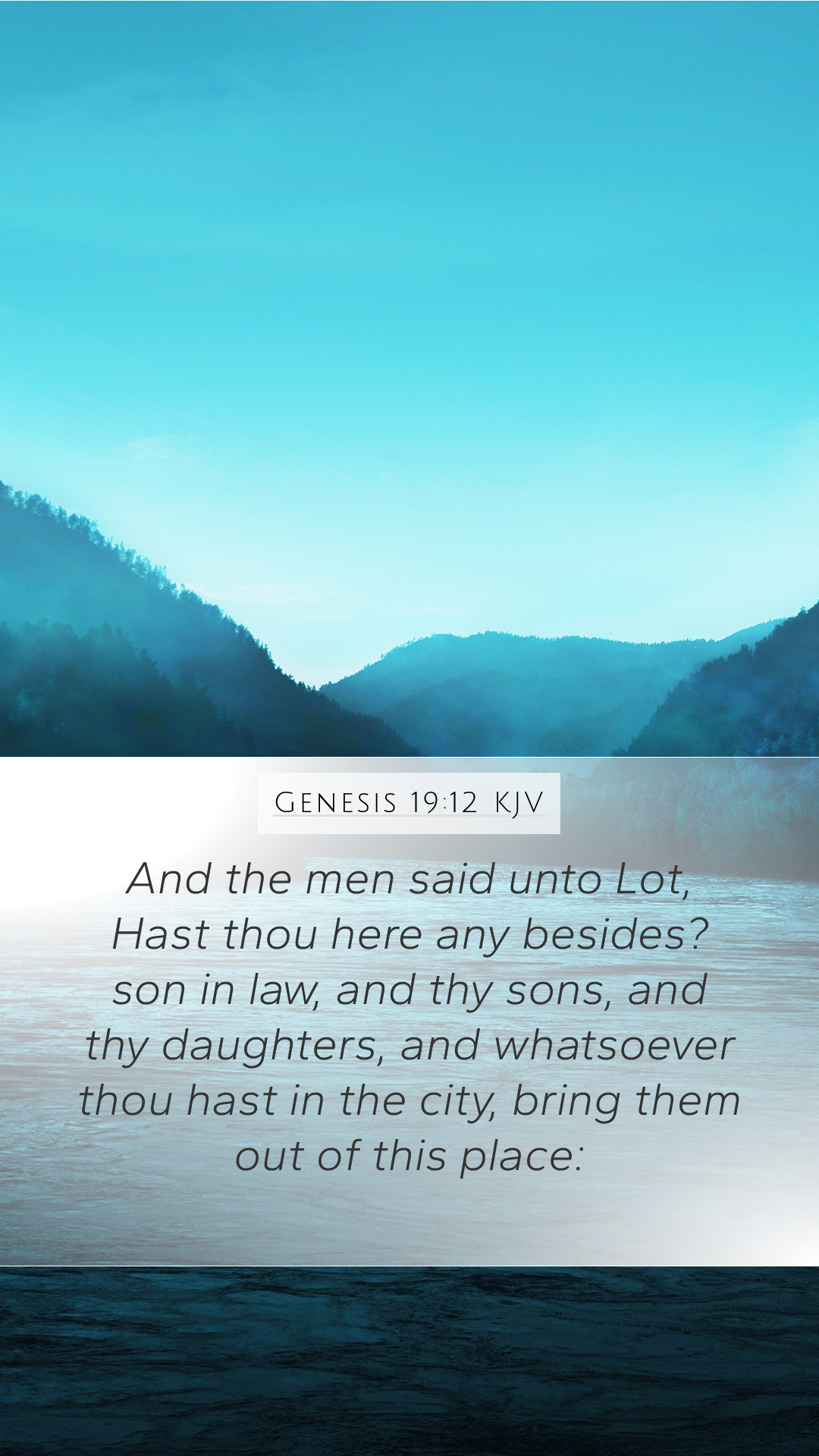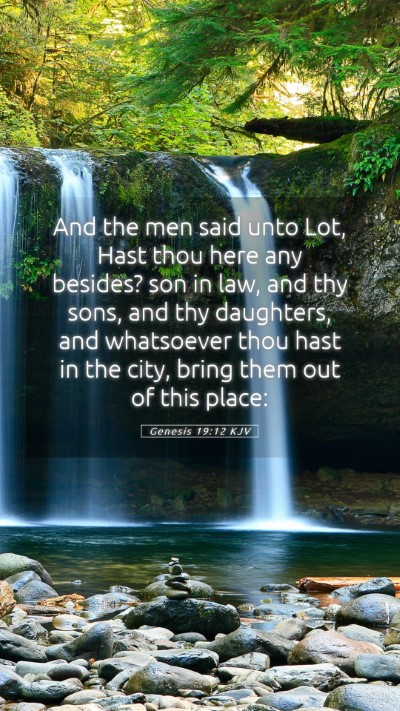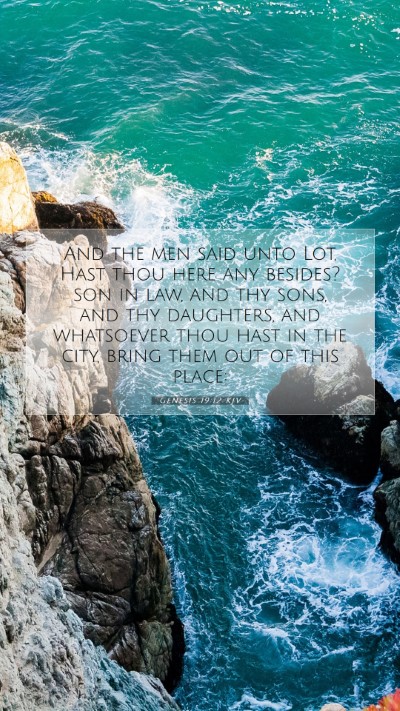Understanding Genesis 19:12
Genesis 19:12: "And the men said unto Lot, Hast thou here any besides? son-in-law, and thy sons, and thy daughters, and whatsoever thou hast in the city, bring them out of this place."
Overview
This verse is situated in the narrative of the destruction of Sodom and Gomorrah, where two angels, disguised as men, visit Lot to alert him about the impending judgment on the cities due to their wickedness.
Bible Verse Meanings
The meaning of Bible verses can often hinge on the immediate context and the larger narrative of scripture. Genesis 19:12 serves as a pivotal moment in the story of Lot’s deliverance and the eventual destruction of Sodom and Gomorrah. The angels' inquiry to Lot reflects a sense of urgency and a call to action for him to save his family from impending doom.
Insights from Commentaries
-
Matthew Henry's Commentary:
Henry emphasizes the mercy shown to Lot amidst the judgment upon Sodom, highlighting that, although Lot lived in a sinful city, he was distinguished by his faith and was warned of the destruction. The question posed to Lot also implies the necessity of gathering his family to flee from the divine wrath about to befall the city.
-
Albert Barnes' Notes:
Barnes discusses the significance of family and community ties in this verse. The reference to Lot's sons-in-law and daughters illustrates the idea that those who are close to us should also be considered in times of crisis. Barnes suggests that the angels prioritize not only Lot’s safety but the safety of his entire household.
-
Adam Clarke's Commentary:
Clarke highlights the urgency of the angels' message, noting that their concern underscores the severity of the coming judgment. He stresses that God's warnings must be heeded promptly, and faith requires action. The focus on Lot's family may also symbolize the more extensive call for humanity to flee from the wrath to come.
Biblical Exegesis
In conducting a biblical exegesis of Genesis 19:12, it is essential to consider the historical context. This passage takes place during a period of profound moral decay in Sodom, where the cries of sin had reached heaven's ears. The divine intervention represented by the angels is both a judgment and a mercy. Lot’s situation mirrors the choices individuals must make regarding safety and righteousness, reflecting themes of escape from sin and judgment.
Historical Context
The story of Sodom and Gomorrah extends beyond just Lot’s family; it serves as a broader commentary on societal sinfulness and the consequences of turning away from God's commandments. The call to bring out his family indicates that salvation often includes advocating for loved ones—a central tenet in many biblical narratives.
Application of Scripture
Understanding this scripture can profoundly impact one's life. It highlights the importance of discerning when to act decisively for oneself and loved ones, especially under pressing circumstances. It prompts readers to reflect on their own lives, relationships, and the influence of their environments.
Applying Bible Verses to Daily Life
The teachings derived from Genesis 19:12 encourage individuals to consider their surroundings and take necessary steps to safeguard their families from spiritual and moral decay. This could translate into practical actions such as fostering healthy relationships, engaging in protective measures against harmful influences, and encouraging faith within households.
Cross Referencing
Genesis 19:12 connects with several other scripture references, which provide additional layers of understanding:
- Genesis 18:20-21: The Lord reveals the outcry against Sodom and Gomorrah.
- 2 Peter 2:6-9: Discusses the destruction of Sodom and Gomorrah as an example of God's judgment.
- Luke 17:28-30: Jesus refers to the days of Lot in illustrating the coming judgment.
Conclusion
In summary, Genesis 19:12 is not merely a historical account; it carries significant implications for understanding God’s judgment, mercy, and the responsibilities individuals have toward their families. Biblical exegesis of this verse highlights the urgency for faith and action in times of moral crisis. By studying such verses, Bible study groups and individuals can uncover deeper meanings, leading to enriched Bible study insights and practical applications that resonate through daily life.
For Further Study
If you are seeking to dive deeper into understanding scripture, consider using various Bible study tools and guides that provide systematic methodologies for interpreting difficult Bible passages and applying them in modern contexts. Exploring additional biblical themes such as the significance of Jesus' teachings or Old Testament prophecy interpretations can also enrich one's scripture understanding.


